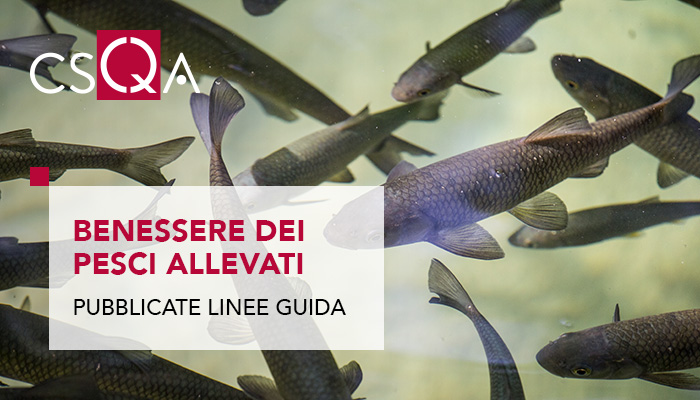
“Guidelines on water quality and handling for the welfare of farmed vertebrate fish” have been published. The document was drawn up by a voluntary initiative group on fish within the framework of the European Union (EU) Platform on Animal Welfare ( EU-Platform on Animal Welfare ), made up of European experts from various realities: research centres, universities, production chains, institutions, animal rights associations.
The guidelines are translated into 23 languages and are available on the European Commission website .
The involvement of such different categories of the "aquaculture" world, who have shared the contents on the technical management of farms, represents the added value of these guidelines. Although endorsed by the European Commission, for the moment the document has only a preparatory nature , as it defines the guidelines on water quality and the handling of farmed fish, without providing technical attachments. But by 2026 the Commission itself is expected to set up a specialized group that will work on legislation on animal welfare in farmed fish .
However, the qualifying aspect remains the ethical reflection at the heart of these guidelines. As the premise states “Fish from farmed vertebrates are sentient beings and their custody entails the ethical responsibility to ensure their well-being. […] Pain, distress, suffering, disease, mortality, stress, aggression and behavioral disturbances should be avoided and minimized, while natural behaviors and a positive state of well-being should be encouraged” .
The position taken by the experts on the issue of animal welfare is a first step towards the development of Community legislation .
Good farming practices must therefore start with water quality and animal handling, in combination with other management aspects such as transport, slaughter, feeding regimes, housing and breeding regimes. (Source: https://www.izsvenezie.it/ )